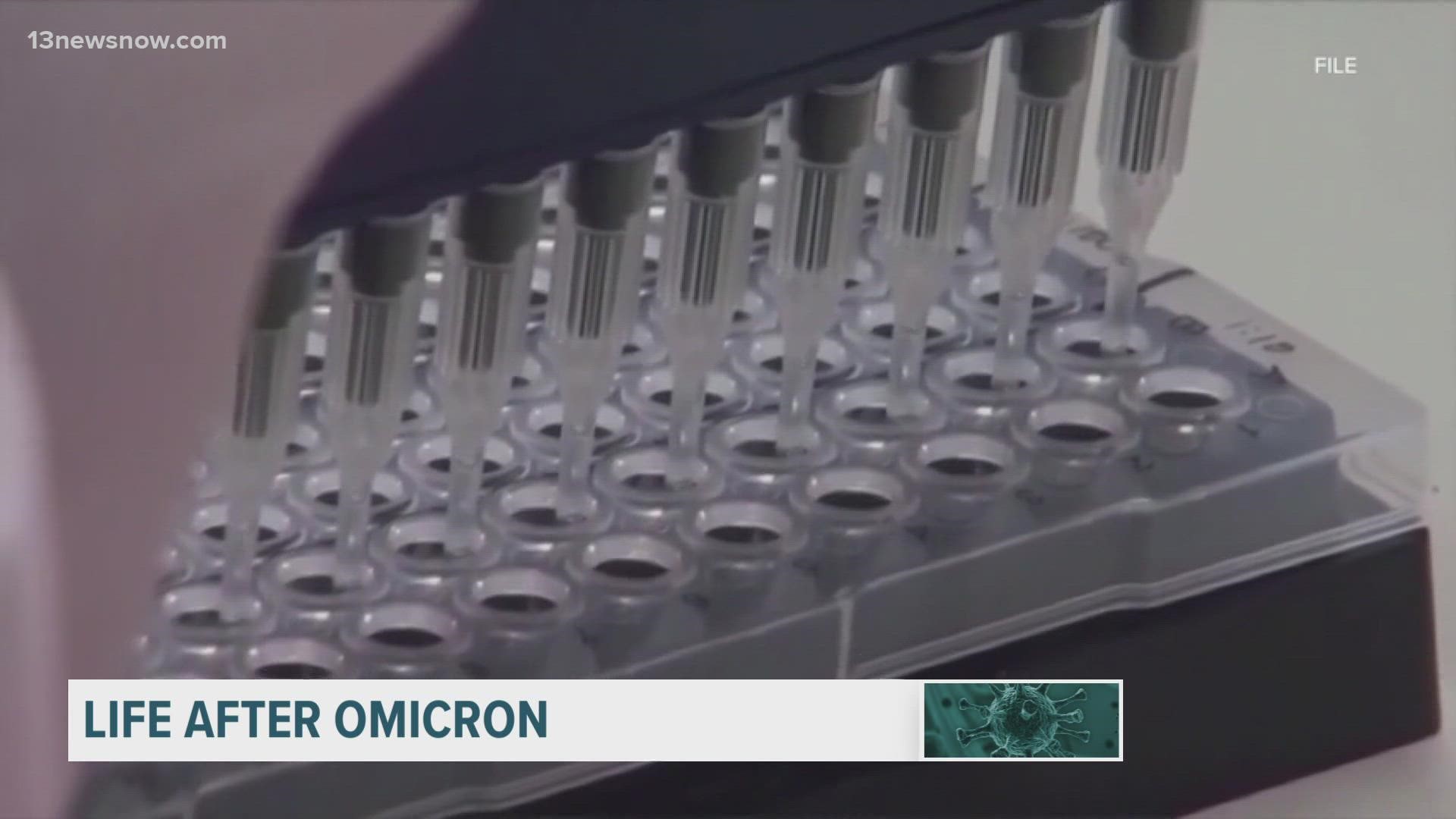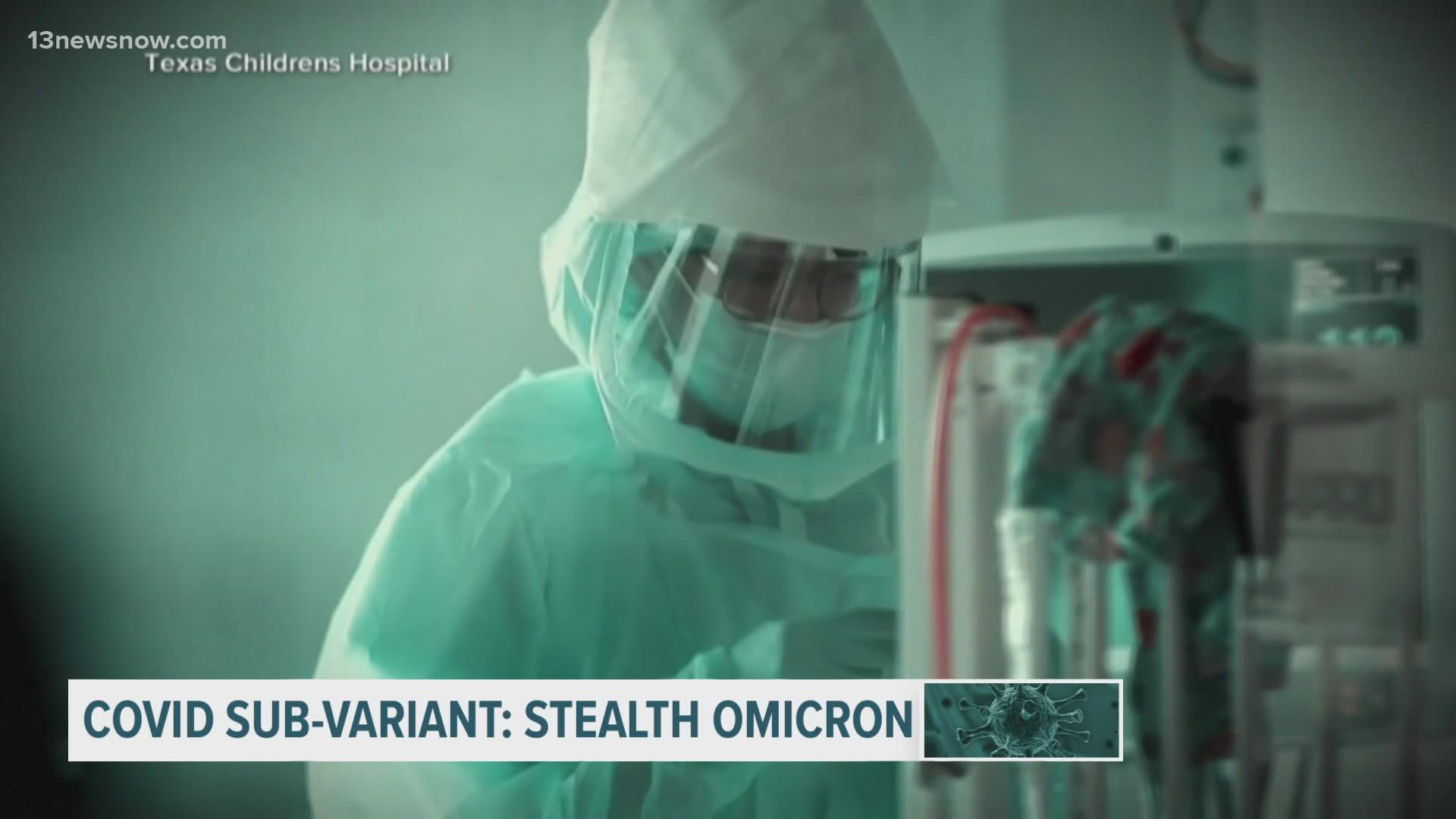VIRGINIA, USA — Dr. Patrick Jackson, assistant professor of infectious diseases at the University of Virginia, aligns his isolation period guidelines with the Centers for Disease and Control.
He recommends people with COVID-19 to stay home for at least five days after onset of symptoms or after their positive test, if asymptomatic.
If an infected person feels well on the fifth day, Jackson strongly advises wearing a mask while in public for the next five days.
Jackson also cautions to avoid people who may be vulnerable to the virus during that 10-day period.
"While natural infection does confer some immunity, and that is important, it's still the case that vaccination and vaccinations plus booster gives you even better immunity," he said. "So, it’s still beneficial to get vaccinated, even if you have been infected."
And you don't have to wait long after you've recovered, according to Jackson.
"You can get vaccinated or boosted as long as you're out of that isolation period. So, for most folks, that's outside of 10 days after the onset of symptoms as long as you're feeling better. For patients who are immunocompromised or have severe disease who may end up in the hospital, that could be maybe 20 days."
Jackson also points out that while there are early signs of Omicron receding, hospital systems like at UVA are still bearing the burden of this surge.
Coupled with uncertainty over what's next in the pandemic, he says it's still worth following public safety precautions, like mask wearing and distancing, even after getting over the virus.
"There's no reason to run additional risks," he said.
Jackson adds that reinfection of the same strain is uncommon, but it can happen.
Moreover, Jackson says that people at highest risk for reinfection are the immunocompromised or those who previously had a mild case of COVID-19.


